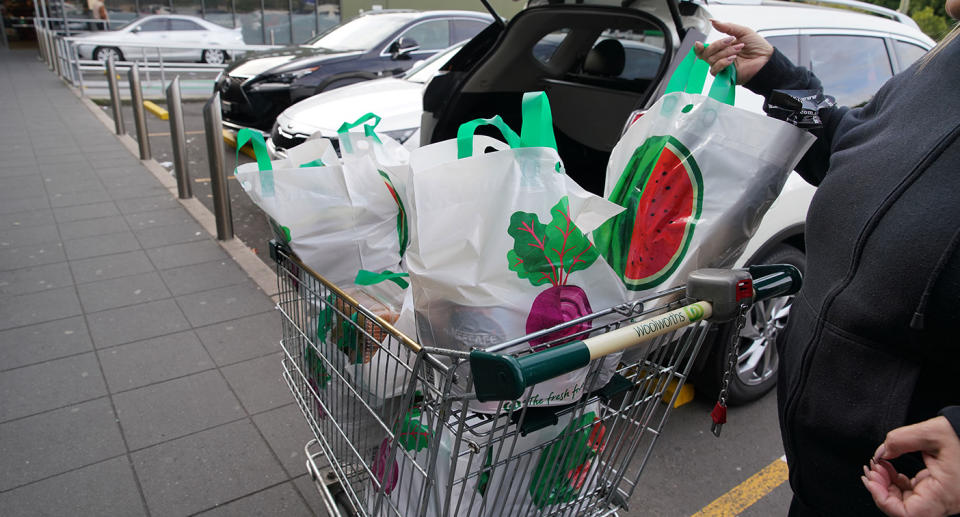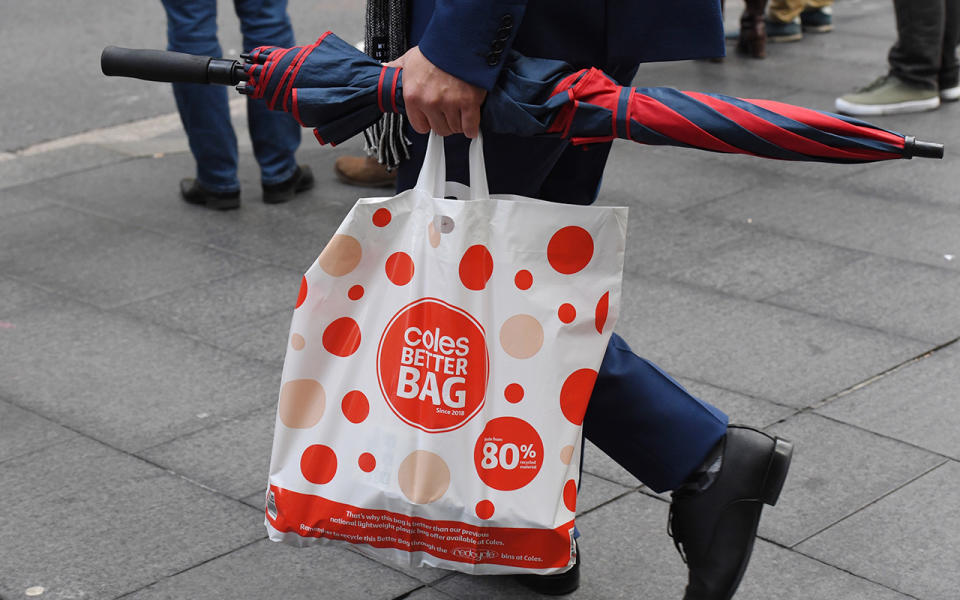The disturbing truth behind the success of supermarket giants' plastic bag ban
Just one day after Coles and Woolworths were heralded for the significant impact made by their plastic bag policy, questions have arisen as to whether it’s just covering up a bigger problem.
The National Retailers Association on Monday revealed that the introduction of more than 1.5 billion plastic bags had been prevented, three months after the supermarket giants stopped offering single-use plastic bags.
The radical change translated to an 80 per cent drop in the consumption of plastic bags nationwide, however industry experts remain cautious given no statistics about the alternate 15 cent reusable bags, which take longer to break down, have been released.
Spokespeople from both Woolworths and Coles refused to directly answer Yahoo7 News when asked how many of the thicker reusable bags they had rolled out since their respective policy changes earlier this year – an approach environmental experts say is concerning.

Mark Browne, a research associate at the University of New South Wales, said the supermarkets and the NRA had failed to paint the full picture about the amount of plastics being released into the environment.
“We have always been told that they are using less bags but they have left out key information, like how many of the more durable bags they have sold since,” the environmental expert told Yahoo7 News.
“Rather than having 10 lighter bags, we might now have one bag that is 10 times its weight.
“Perhaps the question needs to be in terms of kilograms of plastic used – has there been an overall change?”

A specialist in the area of microplastics and ecotoxicology, Mr Browne has advised Australian, American and European governments, but said time and time again advice from scientists has been ignored and overlooked.
“We are seeing the same problem across the board – these interventions are being rolled out without a proper understanding of what the problem is,” he said.
“We need to find out what the problem is and what success would look like.
“As a taxpayer I get worried, as a consumer I get worried too because someone has to pay for this [plastic bag intervention].”
A ‘brave move’ by Aussie supermarkets
NRA’s David Stout on Monday praised Australia’s largest supermarkets for implementing the ban on single-use plastic bags and for the smaller businesses who followed suit.
“They’re (supermarkets) obviously seen as the product stewards so a lot of people will come back to them,” Mr Stout said.

“Obviously the best thing for smaller businesses is to either engineer out the bag completely or have the customer pay … they should be able to consider that strategy without fear of backlash.
“Everyone delivering things in a package need to take responsibility for what they deliver it in,” he said.
“I think there’s going to be a lot more pressure on all of us to be more aware of what we consume.”
With NSW the only state or territory in Australia that hasn’t moved to legislate to phase out plastic bags, Mr Stout says it’s time to step up and quit relying on the supermarket ban to do the work.
“We’re still seeing a lot of small to medium bags being used, especially in the food category, and whilst I get some comfort that the majors have done this voluntarily I think there still needs to be a ban in place,” he said.


